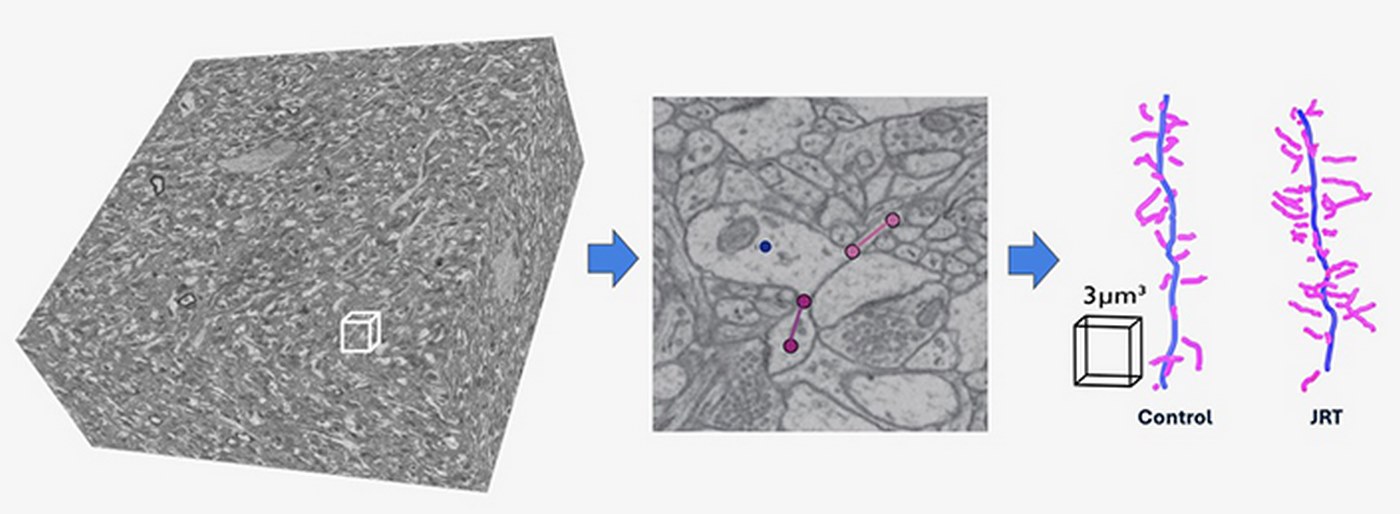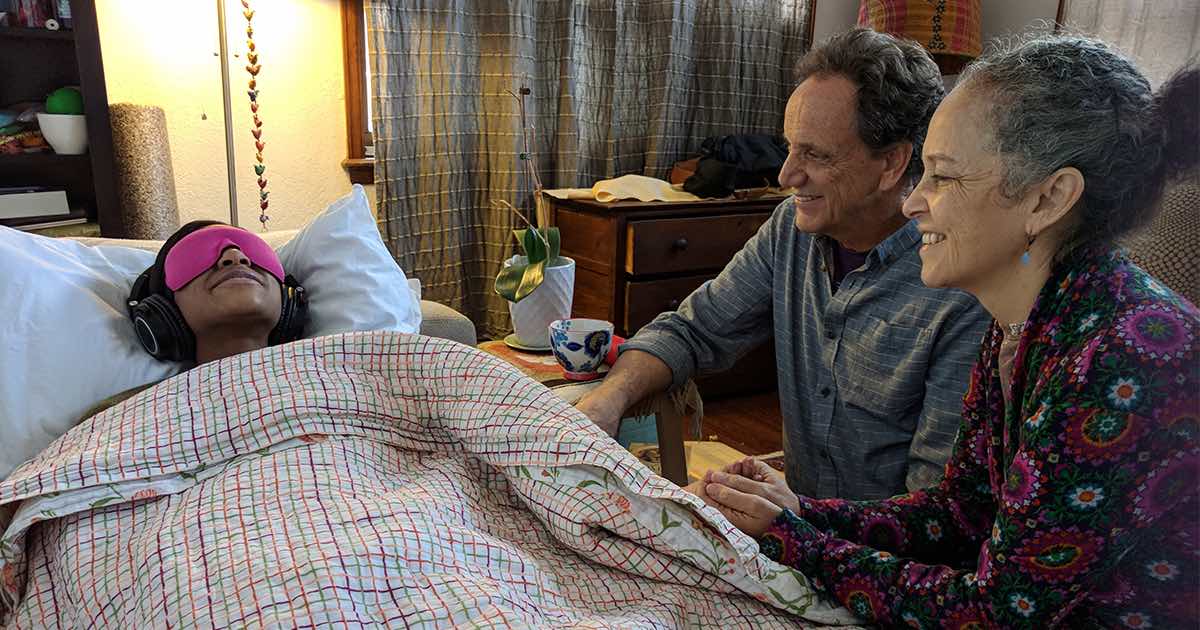Ghoti Ichthus
Genesis 18:32, 2 Chronicles 7:14, Acts 5:29
Maybe a cure, or at least effective treatment, for Alzheimer's and/or other dementias is somewhere in this general direction.






Apr 28, 2025
"With its ability to aid in enhancing neuroplasticity, the famous hallucinogenic compound LSD has been theorized as a treatment option for neurological disorders like cognitive decline and schizophrenia.
One wouldn’t want to dose a schizophrenic with LSD, but following the synthesis of a new molecule based on LSD at a laboratory in California, they may never need to.
JRT is identical to LSD within a margin of two atoms, and it was created at the Univ. of California Davis to solve existing shortages of potent neurotherapeutics for use in treating schizophrenia and cognitive decline.
A study that tested JRT in mice found that it could elicit a 46% growth in the density of dendritic spines on the exteriors of neurons. These organelles work a little like antennae, and receive input from synapses, or the connections between neurons that drive cognitive function.
Synapses were also found to be increased under the influence of JRT—by 18% in the pre-frontal cortex.
However unlike LSD, there was no indication whatsoever that the mice were undergoing hallucinogenic effects, nor did it promote gene expression associated with schizophrenia, something that is amplified in LSD use."
"Though the principle target of the study was schizophrenia, the improvement in neuroplasticity could have therapeutic effects in other neuropsychiatric and neurodegenerative diseases characterized by synaptic loss and brain atrophy, something the team is currently testing more and which represents the next phase of this exciting research."
More

 www.goodnewsnetwork.org
www.goodnewsnetwork.org
Jan 7, 2024
An African psychedelic plant “significantly” alleviated the symptoms of war veterans suffering from traumatic brain injuries (TBIs), according to another new study.
Ibogaine, a naturally occurring compound found in the roots of the African shrub iboga, was found to successfully improve functioning, PTSD, depression and anxiety in military veterans.
The plant-based psychoactive drug, which has been used in Africa for a thousand years during spiritual and healing rituals, was also found to contain no adverse side effects—with some veterans saying the experimental treatment saved their lives.
Hundreds of thousands of troops serving in Afghanistan and Iraq have sustained TBIs in recent decades, and these injuries are suspected of playing a role in the high rates of depression and suicide seen among military veterans. With mainstream treatment options not fully effective for all veterans, researchers have sought therapeutic alternatives.
Ibogaine has gained notoriety in scientific communities for its potential to treat opioid and cocaine addiction, because it increases signaling of several important molecules within the brain, some of which have been linked to drug addiction and depression."
"Encouraging brain injury research—conducted in test tubes, lab animals, and a few small studies in people—points to the potential of psychedelic drugs to limit brain damage after injury, and even stimulate the birth of new neurons to replace impaired ones.
They can open the learning windows that allow the brain to acquire new skills.
One recent study, published in the journal Nature, found lab animals taking psychedelics adopted skills as adults that were previously limited to childhood.
This has been shown in psychedelic studies before when Johns Hopkins found that MDMA, also known as ‘ecstasy’ reopened “critical windows” of brain development typical of singular periods in life when the brain is more sensitive to environmental stimuli."
More

 www.goodnewsnetwork.org
www.goodnewsnetwork.org






LSD Tweaked to Harness Therapeutic Power for Mental Health Without Hallucinogenic Effects
By Andy CorbleyApr 28, 2025
"With its ability to aid in enhancing neuroplasticity, the famous hallucinogenic compound LSD has been theorized as a treatment option for neurological disorders like cognitive decline and schizophrenia.
One wouldn’t want to dose a schizophrenic with LSD, but following the synthesis of a new molecule based on LSD at a laboratory in California, they may never need to.
JRT is identical to LSD within a margin of two atoms, and it was created at the Univ. of California Davis to solve existing shortages of potent neurotherapeutics for use in treating schizophrenia and cognitive decline.
A study that tested JRT in mice found that it could elicit a 46% growth in the density of dendritic spines on the exteriors of neurons. These organelles work a little like antennae, and receive input from synapses, or the connections between neurons that drive cognitive function.
Synapses were also found to be increased under the influence of JRT—by 18% in the pre-frontal cortex.
However unlike LSD, there was no indication whatsoever that the mice were undergoing hallucinogenic effects, nor did it promote gene expression associated with schizophrenia, something that is amplified in LSD use."
"Though the principle target of the study was schizophrenia, the improvement in neuroplasticity could have therapeutic effects in other neuropsychiatric and neurodegenerative diseases characterized by synaptic loss and brain atrophy, something the team is currently testing more and which represents the next phase of this exciting research."
More

LSD Tweaked to Harness Therapeutic Power for Mental Health Without Hallucinogenic Effects
JRT is identical to LSD within a margin of two atoms, and could solve existing shortages of drugs for use in treating schizophrenia.
 www.goodnewsnetwork.org
www.goodnewsnetwork.org
Another Study Shows African Psychedelic Plant Ibogaine Treats Traumatic Brain Injury in Vets With ‘Dramatic’ Results
By Good News NetworkJan 7, 2024
An African psychedelic plant “significantly” alleviated the symptoms of war veterans suffering from traumatic brain injuries (TBIs), according to another new study.
Ibogaine, a naturally occurring compound found in the roots of the African shrub iboga, was found to successfully improve functioning, PTSD, depression and anxiety in military veterans.
The plant-based psychoactive drug, which has been used in Africa for a thousand years during spiritual and healing rituals, was also found to contain no adverse side effects—with some veterans saying the experimental treatment saved their lives.
Hundreds of thousands of troops serving in Afghanistan and Iraq have sustained TBIs in recent decades, and these injuries are suspected of playing a role in the high rates of depression and suicide seen among military veterans. With mainstream treatment options not fully effective for all veterans, researchers have sought therapeutic alternatives.
Ibogaine has gained notoriety in scientific communities for its potential to treat opioid and cocaine addiction, because it increases signaling of several important molecules within the brain, some of which have been linked to drug addiction and depression."
Psychedelic Drugs May Be Able to Treat Brain Injuries, Stimulating New Neurons to Replace Impaired Ones
2023"Encouraging brain injury research—conducted in test tubes, lab animals, and a few small studies in people—points to the potential of psychedelic drugs to limit brain damage after injury, and even stimulate the birth of new neurons to replace impaired ones.
They can open the learning windows that allow the brain to acquire new skills.
One recent study, published in the journal Nature, found lab animals taking psychedelics adopted skills as adults that were previously limited to childhood.
This has been shown in psychedelic studies before when Johns Hopkins found that MDMA, also known as ‘ecstasy’ reopened “critical windows” of brain development typical of singular periods in life when the brain is more sensitive to environmental stimuli."
More

Psychedelic Drugs May Be Able to Treat Brain Injuries, Stimulating New Neurons to Replace Impaired Ones
The idea is that psychedelics could keep the critical windows open long enough to recover far more function than would otherwise be the case.
 www.goodnewsnetwork.org
www.goodnewsnetwork.org
